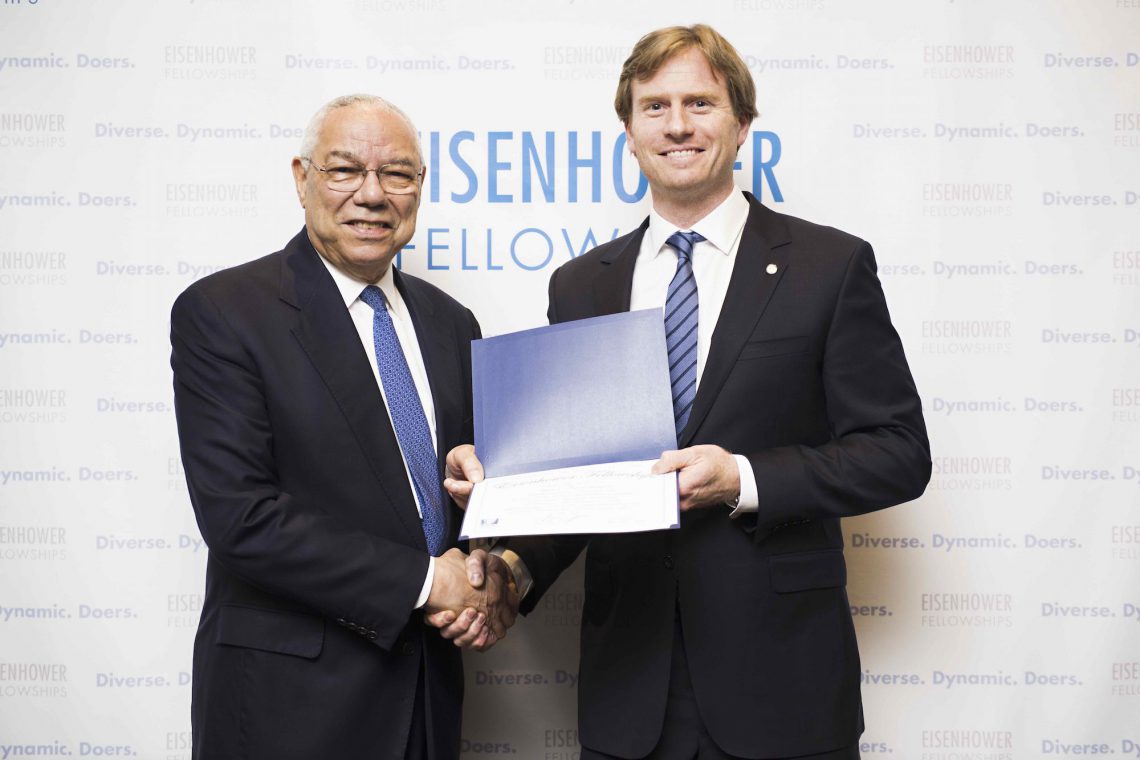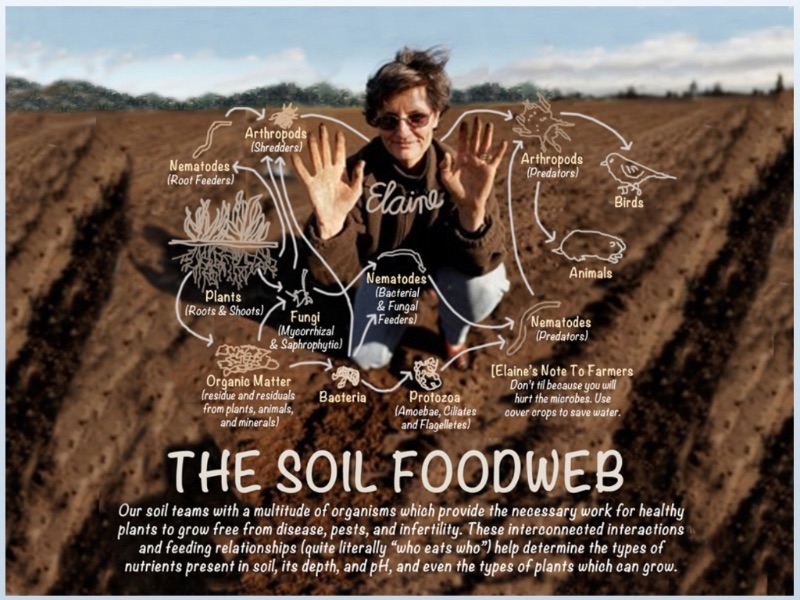Ep. 57: Gabe Brown – Innovator, farmer, businessman, author and soil health pioneer -ft. co-host: Jay Vilar of Nourish ||
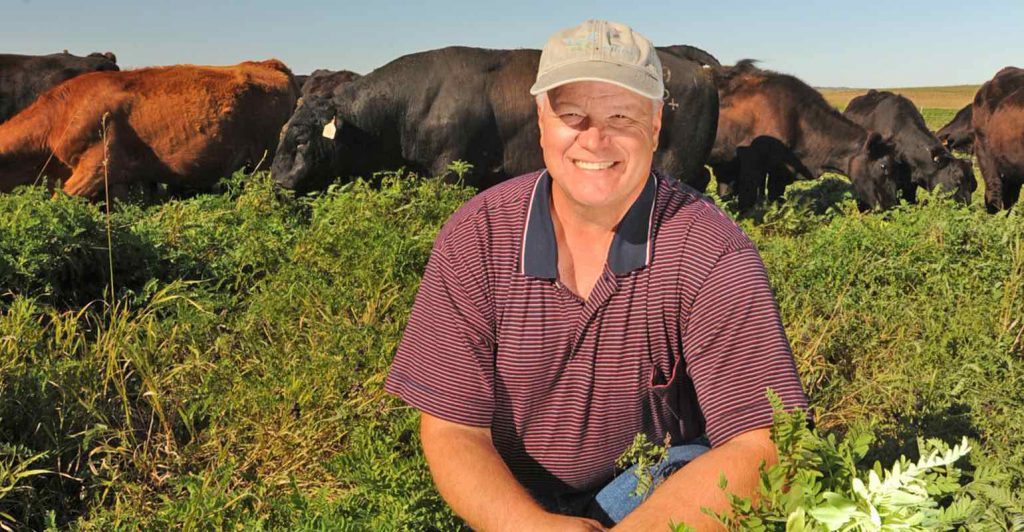
On episode 57 we welcome Gabe Brown – farmer, businessman, author and soil health pioneer. Gabe, along with his wife, Shelly, and son, Paul, own and operate a diversified 5,000-acre farm and ranch near Bismarck, N.D. Their operation focuses on farming and ranching in nature’s image. The Browns holistically integrate their grazing and no-till cropping system, which includes a wide variety of cash crops along with multi-species cover crops and all-natural, grass-fed beef, poultry and sheep. This diversity and integration has regenerated the natural resources on the ranch without the use of synthetic fertilizers, pesticides or fungicides. Over 2,000 people visit the Brown’s ranch annually with visitors from all 50 states and 16 foreign countries.
.
Brown recently released the book “Dirt to Soil” describes their personal voyage into regenerative agriculture. This insight gained over a these decades of hard work has established a nimble knowledge-base. In this his first book – Gabe Brown has distilled all that complexity into five (5) principles of a healthy soil-ecosystem.
.
- No disturbance (no-till, no-synthetics)
- Bolstering Soil’s Natural Defense (the outer-layer protecting all that life)
- Bio-diversity (marrying nature’s way keeps the system healthy)
- A living root in the ground as long as possible (covercrops & seasonal diversity)
- Animal & Insect integration (nature relies on the entire system working together)
.
Nutritionist Jay Vilar joins again as co-host. Vilar is the founder, and a practitioner at ‘Nourish’ – a bespoke consulting company with a mission to educate, teach, and train people on the benefits of using food to heal your body and optimize your health. Jay has always been on the forefront of using optimal health techniques, and bio-hacking his nutrition to achieve remarkable results in his career. Jay now spends his time teaching people how to use food to heal their body and speaks to businesses on how to optimize focus & productivity using nutritional and behavioral science. Jay recently completed a Fellowship at the Rodale Institute, and just relocated from DC to join our crew in Boston.
.
It’s a fascinating 45 minute conversation with a guy who has a unique ability to tell it like it is. To clarify and simplify some pretty sophisticated subject matter so that we can all better appreciate the broad-reaching values that soil health and regenerative agriculture can bring to our world.
.
co-host:
Jay Vilar
- Founder of Nourish
- A focus on Nutritional Therapy
- Rodale Institute Fellow
- Host of ‘listen to your mother’ show


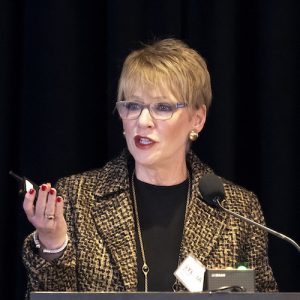 Prior to AquaBounty, Sylvia was President of StockYards, SVP of Merchandising, and President of the Manufacturing Division for US Foods. A $23 billion broad line foodservice distributor, US Foods is the the 2nd largest foodservice distributor in the US. Wulf was responsible for the P&L of the $10 billion protein and produce categories and the $1 billion Manufacturing Division of U.S. Foods Meat, Seafood and Produce operations. While leading this anchor division, Wulf developed a source to sale strategic approach that not only improved profitability but drove growth in market share at 3X the industry average. In her numerous roles responsibilities included the P&L of Perishables categories, centralized sourcing/replenishment, 15 manufacturing facilities for Meat and produce.
Prior to AquaBounty, Sylvia was President of StockYards, SVP of Merchandising, and President of the Manufacturing Division for US Foods. A $23 billion broad line foodservice distributor, US Foods is the the 2nd largest foodservice distributor in the US. Wulf was responsible for the P&L of the $10 billion protein and produce categories and the $1 billion Manufacturing Division of U.S. Foods Meat, Seafood and Produce operations. While leading this anchor division, Wulf developed a source to sale strategic approach that not only improved profitability but drove growth in market share at 3X the industry average. In her numerous roles responsibilities included the P&L of Perishables categories, centralized sourcing/replenishment, 15 manufacturing facilities for Meat and produce.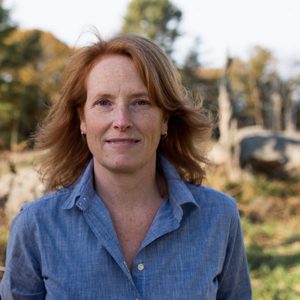 In our 45 minute conversation we discuss the ins and outs of investing in regional and sustainable food systems of the Northeast and beyond. CEI is a mission-driven lender and investor specializing in rural business development and financing. In Maine, and throughout the U.S., CEI helps to create economically and environmentally healthy communities in which all people, especially those with low incomes, can reach their full potential. CEI is unique with its dossier of offerings which include business loans, micro-loans, new market tax credits, sub-debt loans, SBA 504 loans, business plans, marketing plans, business advising, financial advising, and public policy leadership.
In our 45 minute conversation we discuss the ins and outs of investing in regional and sustainable food systems of the Northeast and beyond. CEI is a mission-driven lender and investor specializing in rural business development and financing. In Maine, and throughout the U.S., CEI helps to create economically and environmentally healthy communities in which all people, especially those with low incomes, can reach their full potential. CEI is unique with its dossier of offerings which include business loans, micro-loans, new market tax credits, sub-debt loans, SBA 504 loans, business plans, marketing plans, business advising, financial advising, and public policy leadership.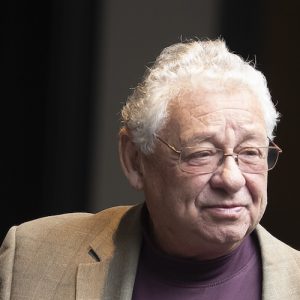 In early November 2018 Goldberg hosted The “ChooseFood” symposium in Baltimore. It was a gathering to evaluate some of the core ethical questions of food and its production. Top brass speakers shared insight on ethics of in food labor, environmental impact, externalities, animal welfare, health risk factors & new tech – all were on the docket. Coming it at from the food animal side It was a fascinating exercise for me to see how far we’ve come since the 2007 PEW commission report, what more needs to be done with food animal production, and how broad the aperture has grown to encapsulate ethics into our food and global production.
In early November 2018 Goldberg hosted The “ChooseFood” symposium in Baltimore. It was a gathering to evaluate some of the core ethical questions of food and its production. Top brass speakers shared insight on ethics of in food labor, environmental impact, externalities, animal welfare, health risk factors & new tech – all were on the docket. Coming it at from the food animal side It was a fascinating exercise for me to see how far we’ve come since the 2007 PEW commission report, what more needs to be done with food animal production, and how broad the aperture has grown to encapsulate ethics into our food and global production. Joining us for the 45 minute discussion is The Carrot Project founder and Executive Director Dorothy Suput. Suput’s commitment to a sustainable food system grew out of the incredible contrasts between Midwestern agriculture, with which she grew up, and the locally focused food and farming system in Switzerland, where she lived after graduating with a BS from Purdue University. Following graduate school at Tufts, Dorothy worked as the first regional organizer on the 1995 Farm Bill for the Northeast Sustainable Agriculture Working Group under the auspices of the Campaign for Sustainable Agriculture, and subsequently, as a consultant for business and agency.
Joining us for the 45 minute discussion is The Carrot Project founder and Executive Director Dorothy Suput. Suput’s commitment to a sustainable food system grew out of the incredible contrasts between Midwestern agriculture, with which she grew up, and the locally focused food and farming system in Switzerland, where she lived after graduating with a BS from Purdue University. Following graduate school at Tufts, Dorothy worked as the first regional organizer on the 1995 Farm Bill for the Northeast Sustainable Agriculture Working Group under the auspices of the Campaign for Sustainable Agriculture, and subsequently, as a consultant for business and agency.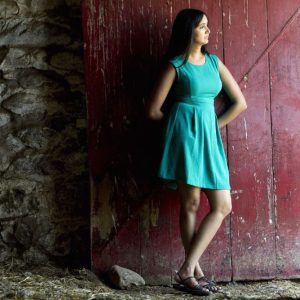 Faruqi’s previous work ‘Project Animal Farm’ was released in 2015. This non-fiction work looked at the world’s food system through chronicling a journey to 60 animal farms in 8 countries. Faruqi combines her hands-on immersive learning with analysis on modern global agricultural models. The well researched book comes in tow with recommendations, and food sustainability solutions for many of these international issues. She has some heavy hitters in food, agriculture and ocean health singing her praises.
Faruqi’s previous work ‘Project Animal Farm’ was released in 2015. This non-fiction work looked at the world’s food system through chronicling a journey to 60 animal farms in 8 countries. Faruqi combines her hands-on immersive learning with analysis on modern global agricultural models. The well researched book comes in tow with recommendations, and food sustainability solutions for many of these international issues. She has some heavy hitters in food, agriculture and ocean health singing her praises.